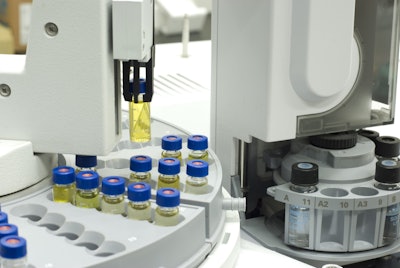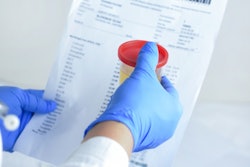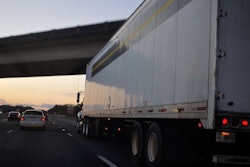The Trucking Law segment is a monthly feature on Overdrive, in which we pose commonly asked questions from truckers and owner-operators to legal experts. In this installment, Dr. Alexander E. Underwood discusses the accuracy of modern drug tests and the problem with CBD products. Find all Trucking Law installments via this link.
 Mass spectrometry identifies substances in urine through analysis at the atomic level. If this test is positive for a certain substance, there is no question about its presence in the subject’s body.
Mass spectrometry identifies substances in urine through analysis at the atomic level. If this test is positive for a certain substance, there is no question about its presence in the subject’s body.In the drug testing days of yore, a patient would pee in a cup, and a doctor would interpret squiggly lines or mysterious color changes on a testing strip. Results were less than 100% accurate, so there was concern about false positives.
That’s no longer the case. Drug testing for commercial drivers is sophisticated and accurate. Urine tests are sent to a certified laboratory, where they initially will be tested by immunoassay, which examines specific molecules, to see if they meet a need for further testing.
If that’s the case, samples will be tested via mass spectrometry, which identifies the substance on the atomic level. If this test is positive for a certain substance, there is no question about its presence in your body, even if you have no idea how it got there.
Hair testing follows a similar procedure and is just as accurate. Also, hair testing has a bigger window on drug usage, being able to detect drug use for up to three months. Many larger fleets have added hair testing because it is so comprehensive, even though it’s much more expensive than urine testing. However, for the time being, urine testing is still mandated.
 Dr. Alexander E. Underwood works at KT Health Clinic, a mile from I-44’s Exit 80 near Springfield, Missouri. He can be reached at 417-832-8678 or [email protected].
Dr. Alexander E. Underwood works at KT Health Clinic, a mile from I-44’s Exit 80 near Springfield, Missouri. He can be reached at 417-832-8678 or [email protected].DOT’s required urine test checks for not only illegal drugs but also opiates and other medications that are not illicit. A prescription med that shows up in your drug screen is generally not a problem if you have a prescription for it.

If you don’t, a positive drug screen will result in enforcement action. The medical review officer will request the prescription and want to speak to the prescribing physician. So it’s always best not to omit a medication during a medical certificate exam, because it could lead to invalidation of your DOT medical card.
The accuracy of testing takes on another dimension with the widespread introduction of consumer CBD oil and CBD products. Some studies have shown that CBD, which is found in marijuana, may help reduce chronic pain, sleep disorders, anxiety and other problems.
Many drivers have wondered if the products are safe to use. In February, DOT released a “CBD Notice” to answer that question. The agency reiterated that marijuana is a controlled substance and clarified some other points.
The notice states, “Any product, including ‘Cannabidiol’ (CBD) products, with a concentration of more than 0.3% THC remains classified as marijuana, a Schedule I drug under the Controlled Substances Act.” Schedule I drugs are illegal federally and are not permitted for use as a truck driver under any circumstances, even if legal on the state level, as marijuana often is.
CBD products often contain THC, the primary active ingredient in marijuana. Due to confusion between CBD and THC, as well as misinformation about CBD, the DOT warned that CBD products “could contain higher levels of THC than what the product label states. The Food and Drug Administration (FDA) does not currently certify the levels of THC in CBD products, so there is no federal oversight to ensure that the labels are accurate.”
The bottom line: Blaming a positive drug screen on CBD use will not excuse a driver. Until the FDA regulates CBD products, drivers are advised to abstain from CBD or at least exercise an abundance of caution when using CBD products.










